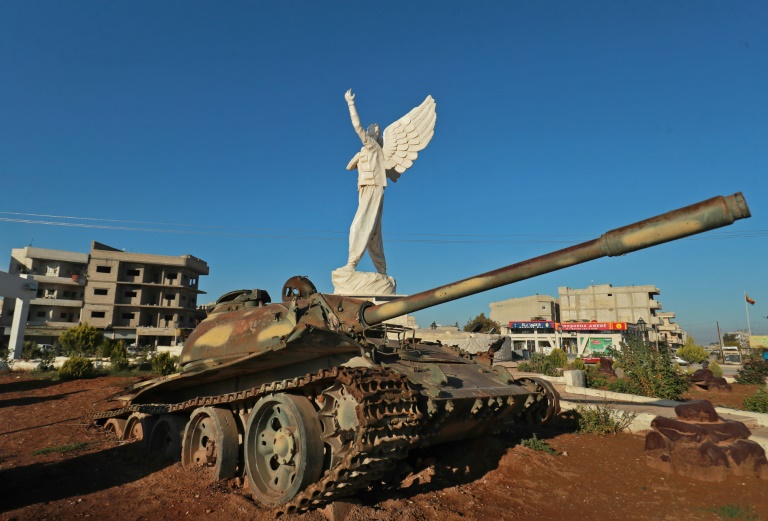Russian, US pressures Turkey over Syria

The Kurdish town of Kobane in northern Syria, where Turkish air strikes have targeted Kurdish militant bases
Istanbul – International pressure mounted Tuesday on Turkish President Recep Tayyip Erdogan not to launch a threatened ground offensive against Kurdish fighters in Syria.
Ankara launched a series of air strikes in Operation Claw-Sword on Sunday — hitting dozens of Kurdish militant targets across Iraq and Syria — and announcing that its military was once again “on the top of the terrorists”.
The air raids followed a bombing in Istanbul that killed six people and wounded 81. Ankara blamed the attack on the Kurdistan Workers’ Party (PKK), which is blacklisted as a terror group by the European Union and the United States.
The Turkish leader has threatened a new military operation into northern Syria since May and upped those threats in the wake of this month’s bomb attack.
“There is no question that this operation be limited to only an aerial operation,” Erdogan told reporters while returning home from the opening of the World Cup in Qatar.
The PKK, which has waged an insurgency against the Turkish state since 1984, denied any role in the November 13 bombing, which was the deadliest in five years after a spate of attacks in Turkey between 2015 and 2017.
The United States late Monday urged de-escalation and Russia said Tuesday it hoped Turkey would exercise “restraint” and refrain from “excessive use of force” in Syria.
“We urge de-escalation in Syria to protect civilian life and support the common goal of defeating ISIS,” US State Department spokesperson Ned Price said in a statement, referring to the fight against the jihadist Islamic State (IS) group.
“We understand and respect Turkey’s concerns regarding its own security… We still call on all parties to refrain from steps that could lead to seriously destabilising the situation,” Kremlin spokesman Dmitry Peskov told reporters.
-‘Robust campaign’-
“We hope to convince our Turkish colleagues to refrain from resorting to excessive use of force on Syrian territory,” Alexander Lavrentyev, Russian President Vladimir Putin’s special envoy on Syria, told reporters in the Kazakh capital Astana.
“Russia has for months… done everything possible to prevent any large-scale ground operation,” Lavrentyev added.
In return, Turkey asked its allies to stop supporting fighters from the Kurdish People’s Protection Units (YPG) who assisted the US-led campaign against IS.
“We tell all our interlocutors especially the United States that the PKK is equivalent to the YPG and we insistently demand that all support to the terrorists be stopped,” Turkish Defence Minister Hulusi Akar told lawmakers.
Turkey has launched three offensives into Syria since 2016 aimed at crushing Syrian Kurdish fighters, whom it charges are allied to the PKK.
Erdogan has repeatedly called for a 30-kilometre (19-mile) “safe zone” to protect southern Turkey against cross-border attacks from Syrian territory.
At least three people, including a child, were killed in a Turkish border town on Monday by a rocket strike fired from Syria.
Anthony Skinner, a Turkey expert and a political risk consultant, told AFP that conditions “are in place for a particularly robust campaign” against Kurdish militants ahead of Turkish presidential and parliamentary elections in June.
“Erdogan wants to bolster support for his AKP and its (nationalist) MHP allies, so he is playing the nationalist and security card. Hence the noise,” he said.
“Erdogan effectively used the security and stability cards in the run up to the rerun of the general election in 2015. But his work is cut out now because of economic and socioeconomic pressures.”
